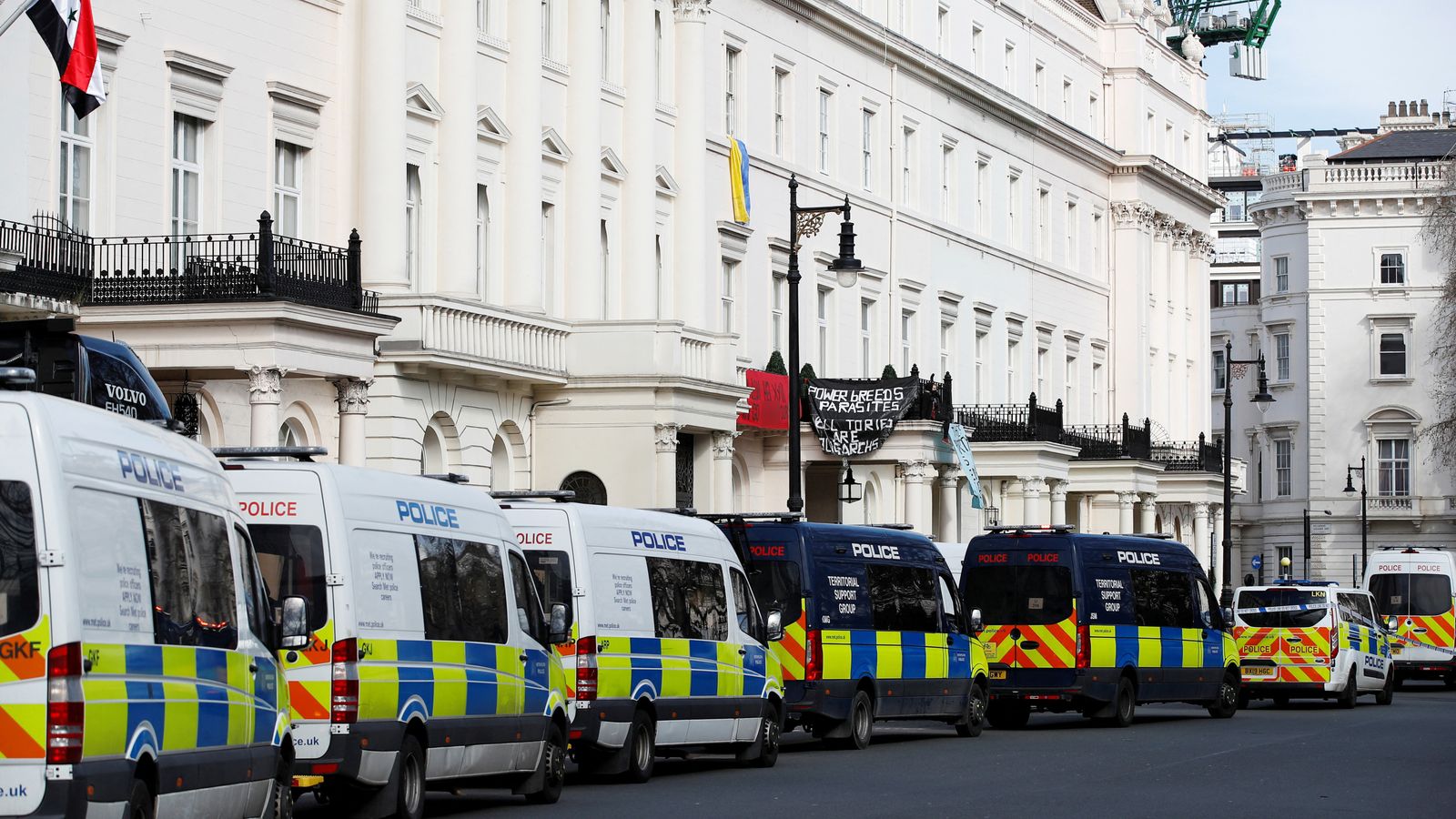After a month of being pummelled with financial sanctions by the west, Vladimir Putin has sought to wield a financial weapon of his own.
The Russian president announced on Wednesday evening that “unfriendly” countries will soon be required to pay for Russian gas in roubles.
To aid understanding, Mr Putin also published a list of those “unfriendly” countries, comprising the United States, the 27 members of the European Union, the UK, Japan, South Korea, Norway, Singapore, Switzerland and Ukraine.
He said: “It is absolutely clear, though, that given the circumstances, it makes no sense for us to supply our goods to the EU or the US and be paid in dollars, euros or certain other currencies.
“So, I have decided to implement, in the shortest possible time, a package of measures to transfer payments, to begin with, for natural gas supplied to ‘unfriendly countries’ to Russian roubles; that is, we will not accept any compromised currency to be used in these transactions.
“At the same time, on a separate note, I would like to note that Russia will continue to supply natural gas in the agreed to volumes and for the agreed-on prices as indicated in the existing contracts.
“Unlike some of our colleagues, we value our business reputation as a reliable partner and supplier.”
P&O Ferries boss admits firm broke law over sackings – and reveals to MPs new workers earn £5.15 an hour
Apollo lines up banks to finance £6bn takeover bid for Boots
Spring statement: Rishi Sunak defends announcement after criticism it fails to help the poorest
The measure – which specifically covers gas but not oil – was accompanied by news that Roscosmos, Russia’s space agency, will also be insisting on payment in roubles from now on. It sent the rouble to a three week high against the US dollar as well as sending some natural gas contracts up by between 15-20% immediately after the announcement.
Russia is estimated to rake in up to $800m every day from its sales of gas to Europe. Of this, some 58% is paid for in euros, with 39% in US dollars and 3% in sterling.
There are several reasons why Mr Putin has taken this step.
The first is that, with Russia’s central bank having been sanctioned by the west, the country is struggling to lay its hands on much of the $643bn reserves it has built up during the last eight years and Russia’s ability to trade in dollars in particular has been severely constrained. So a move to trade its gas in roubles can be seen as an attempt to subvert western sanctions.
The second is that, with the rouble having cratered against most major international currencies following the invasion of Ukraine, the Russian president sees boosting demand for roubles – which is what this measure would do if enforced – this as a way of propping up his flagging currency.
The third key factor is that Russia, like other countries including China, resents the hegemony of the dollar as a global reserve currency. The ubiquity of the dollar enables the US to wield enormous power in the world.
For example, threatening to take away the ability to trade in dollars has ensured that most banks and financial institutions around the world have adhered to US sanctions against Iran over the years.
Banks that were found guilty – by US regulators, naturally – of breaking US sanctions against Iran, such as Britain’s Standard Chartered, had little choice but to pay the fines levied on them, for fear of losing that ability.
So Mr Putin is also seeking to undermine the dollar’s hegemony. He has sought to do so in the past, for instance in 2015, when Gazprom’s oil arm, Gazprom Neft, began selling crude to China in renminbi following western sanctions following the annexation of Crimea.
More recently, China has said it would be willing to pay for Russia’s oil and gas in renminbi, while it has also said Russian companies are welcome to settle trades in the currency.
Meanwhile, some Russian banks have also begun issuing credit cards linked to UnionPay, a Chinese company that provides bank card services and which runs an interbank network linking all of the country’s ATMs.
But for now this move feels chiefly like trying to mitigate the impact of sanctions.
That these are working was highlighted today with news that the NWF, Russia’s so-called ‘rainy day’ fund in which its vast oil revenues are deposited, fell by 11.5% month on month to $154.8bn in February – partly reflecting the plunge in the rouble and in the value of some of the assets in which the fund had invested.
That comes on the heels of news on Wednesday that, in the week ended 18 March, Russian inflation rose at an annualised rate of 14.5%, the highest level since November 2015.
The big question is how this move can be enacted and whether what Mr Putin has announced is legally enforceable.
The Russian president has given the central bank one week in which to come up with a way of switching transactions to roubles while Gazprom, the gas giant controlled by Moscow, has been ordered to change its gas contracts accordingly.
But the biggest single obstacle to enforcing what Mr Putin wants is that buyers of Russian gas will not be able to obtain roubles because that would involve dealing with the Russian central bank – which has been sanctioned by the west.
Accordingly, Russia’s state-controlled media has described Mr Putin’s move as a masterstroke, because potentially it will force Russia’s gas customers to lobby their governments to lift sanctions against the country’s central bank.
That may not work.
Robert Habeck, Germany’s finance minister, has already made clear he regards this as a breach of contract.
That has also been the response of the government in Poland, which satisfies some 8.5% of its energy needs via Russian gas and which has already made clear it will not renew its existing contract with Gazprom when the current one expires at the end of this year.
The finance minister of Japan, which has introduced heavy sanctions against Russia but which has not yet banned Russian gas imports, also said today it was not possible to see how the move is enforced.
It will certainly create a headache for buyers of Russia’s gas.
The German gas association’s managing director said his association had noted the announcement “with great irritation” while one of Gazprom’s big Dutch customers has already said it intends to carry on paying in euros as usual.
Something will have to give. If Mr Putin insists on enforcing this move, it is likely to accelerate the speed with which European customers seek to wean themselves off Russian gas.
However, with countries like Germany on record as saying they cannot do this immediately, it increases the possibility of a recession in some parts of Europe if they are forced to.






















